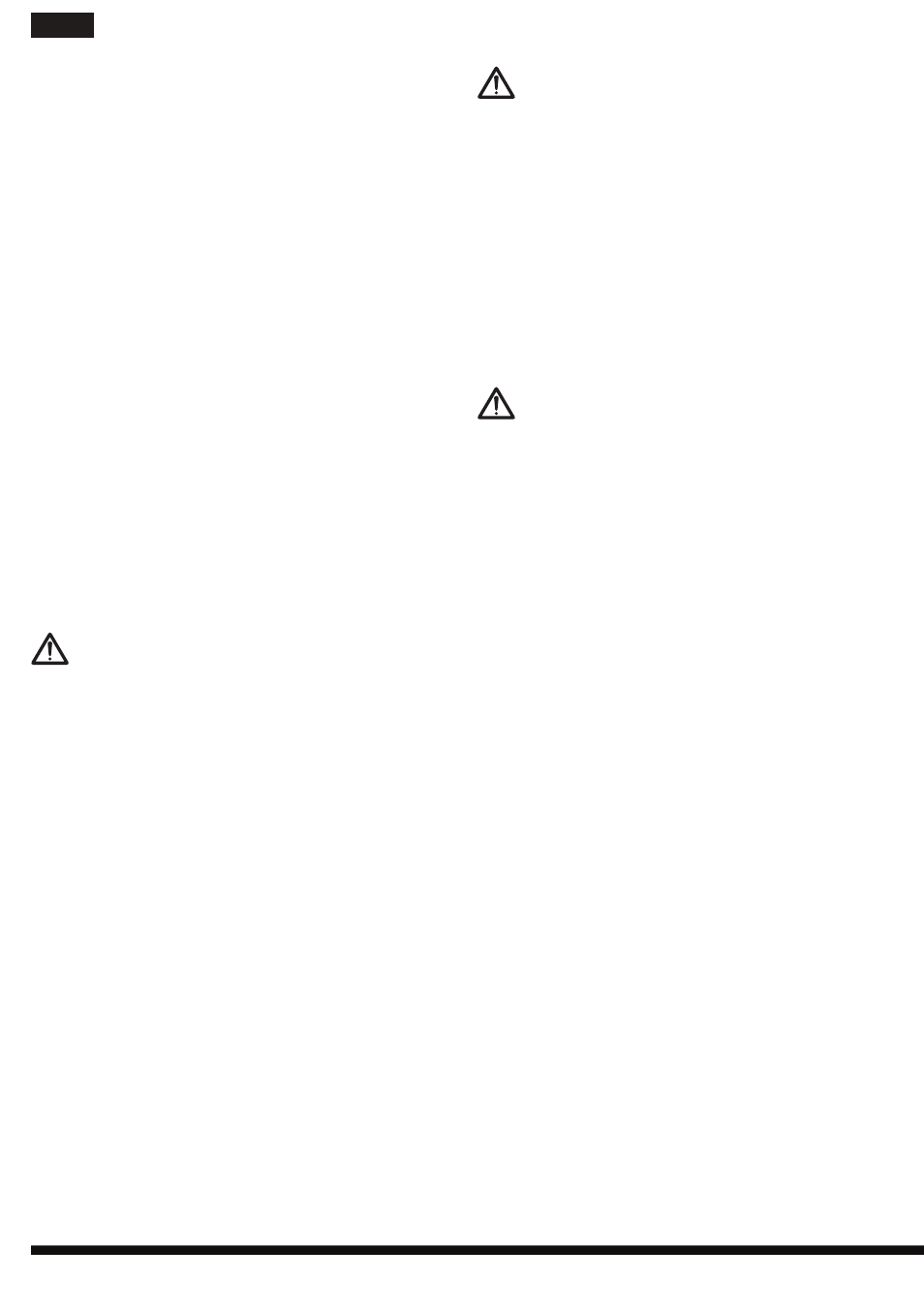It en, Using your juicer, Tips for juicing – Hotpoint Ariston SJ 4010 FSL0 User Manual
Page 12

12
it
en
arrow on the bowl. When the two arrows are
properly aligned, the strainer should lock into
the bowl, thus preventing it from moving around.
Make sure that the teeth along the lower edge of
the strainer holder fit properly into the cogwheel
inside the bowl.
3. Place the Juice bowl on top of the main body:
make sure the bowl is in place by inserting the
3 hooks on the main body into the 3 slots on
the bowl bottom. Perform a slight rotation in a
clockwise direction until a click is heard.
4. Put the Juice Auger into the strainer and rotate
until it falls into place. To make sure that the
screw is in the correct position, verify that the
upper surface is below the level of the strainer
edge.
5. Fit the lid on the Juice bowl and turn it in position
so it locks into the main body.
6. Place the pulp tank so that it fits in position on
the left hand side of the juicer’s main body. Be
sure to align the arrow on the lid with the arrow
on the bowl.
7. Place the juice cup under the Juicer spout.
8. Slide the food pusher down the food chute. The
pusher can only fit one way.
If the Juice bowl and lid are not correctly
assembled, the Juicer will not operate. This
is a safety feature.
USING YOUR JUICER
The Slow Juicer is suitable for celery, spinach, carrots,
apples, bananas, tomatoes, cucumbers, balsam pear
and all the fruits and vegetables which contain juice,
but not for those containing starch. Do not use this
Juicer to squeeze sugarcane and pomegranates.
1. Clean the fruit and vegetables thoroughly,
making them ready for juicing.
2. When juicing fruit with stones or hard seeds, pit
the fruit. Remove all hard inedible skins (i.e. skin
of melons, pineapples, citruses and mangoes)
before juicing.
3. If the pieces of fruit or vegetables are very large,
chop them to a size that will fit down the juicer’s
food chute.
4. Turn clockwise the control knob to the ON
position to juice the fruit.
5. Press the food pusher slowly down until all fruit
or vegetables have gone through the juicer. Do
not press the food pusher rapidly as the juicer
will not be as effective.
Do not put your hand or any other object in
the food chute during operation.
6. The juice from the fruit and/or vegetables will
flow directly into the juice cup and the pulp will
be collected in the pulp bin.
7. When juicing is complete, ensure that the juicer’s
control knob is set to the OFF position, the
power is turned off at the outlet and the juicer is
unplugged. Now the unit can be disassembled
safely.
8. If the Juice Bowl is stuck and does not detach
from the base, turn the knob to “R” for 3-5
seconds. Repeat the process 2-3 times.
Do not turn the knob quickly from ON to R,
but wait a few seconds in the OFF position.
TIPS FOR JUICING
•
Cut food items into small pieces for optimal
extraction.
•
Do not use ice or frozen fruit.
•
Put food into feeding tube. Do not push heavily.
•
Insert food at regular speed, allowing all the pulp
to be extracted with maximum efficiency.
•
When juicing leafy greens or wheatgrass, we
suggest mixing them with fruit or other hard
vegetables for optimal results.
•
Insert nuts to be juiced only with other foods
such as soaked soybeans or liquids.
•
Do not operate with an empty bowl.
•
Leftover juice should be refrigerated or frozen.
•
When selecting fruit and vegetables for juicing,
always select fresh and properly ripe specimens.
Fresh fruit and vegetables carry more flavour
and juice than those that are not properly ripe.
Juice is best consumed when freshly made, as
this is when its vitamin and mineral content is
the highest.
•
If using fruit with hard inedible skin (i.e.
watermelons, pineapples, mangoes etc.) always
peel the skin before placing it in the juicer.
•
The skin of citrus fruit should also be removed
before the fruit is placed in the juicer.
•
For better tasting citrus juice, also remove the
inner white peel from the fruit.
•
Fruit with stones or hard seeds (i.e. mangoes,
nectarines, apricots and cherries) should be
pitted before juicing.
•
A small amount of lemon can be added to the
apple juice to prevent the juice from browning.
•
Bananas can be difficult to juice. When you
use bananas, add them as the first or second
